Uganda
Authorities in Uganda are implementing plans that had been put in place to combat a locust invasion, following sightings of the dreaded pests in the North-east of the country.
Uganda is one of the East African countries affected by what the Food and Agriculture Organisation (FAO) describes as the worst outbreak to hit the region in over three decades.
The locust swarms have already caused panic in Somalia, Ethiopia and Kenya, while Uganda, South Sudan and Tanzania have been on high alert.
Uganda’s prime minister on Sunday called for an emergency meeting in the night to activate the government’s plan to fight the locusts, after they were seen in Amudat district, Karamoja region.
I have called an emergency meeting of relevant political leaders& technical officers
— Dr. Ruhakana Rugunda (RuhakanaR) February 9, 2020OPMUgandaat 7pm tonight to immediately swing into action with the preparedness interventions we have been planning to deal with #DesertLocusts. nbstvnewvisionwirentvugandaOfwonoOpondo
Guys, here is y I am vocal abt #LocustsInUganda: They eat leaves & pastures. So plants & livestock can’t feed. Both will die along with our agric economy. 70% of us will lose our livelihoods. This guys is real! It is not some remote problem we shall watch on media. It is here!
— Robert Kabushenga (@rkabushenga) February 9, 2020
Locusts are here, emergency meetings have started…..but didn’t we have the same meetings one month ago discussing the same? What was the outcome and why wasn’t it implemented?
We always wait for the disaster to fall and start fidgeting to act upon it. Sad— Sarah Biryomumaisho (@BiryomumaishoB) February 10, 2020
Uganda’s plan includes spraying the affected areas using planes, pickups and tractors mounted with motorised sprayers and use of manual hand sprays.
The government plans to deploy soldiers to combat the locusts, and is working on cross-border spraying agreements between Uganda and Kenya.
Meanwhile, authorities in Tanzania are also bracing themselves, following reports of locusts seen in the Moshi area.
“When we got this news in the morning, we started checking our neighbours close to Taveta, but there were no signs of locusts, but this evening, there were reports showing that around Moshi, locusts were seen,” Kilimanjaro Regional Commissioner Anna Mgwira told BBC said on Sunday.
ALSO READ: Somalia declares ‘national emergency’ over locust plague



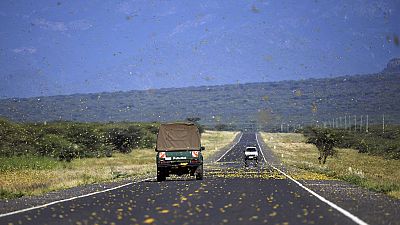

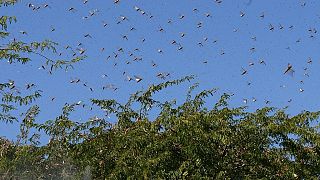
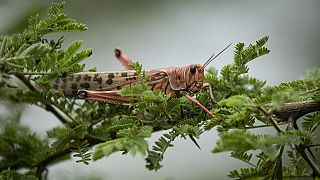

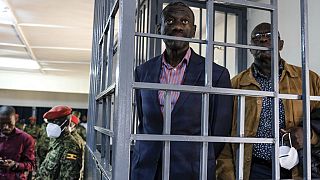




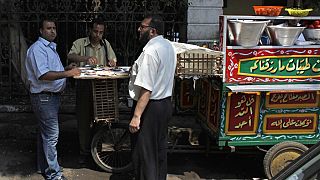
11:05
Africa's hight cost of climate change [Business Africa]
01:16
Kenya investigates alleged abduction in Nairobi of Uganda opposition figure
01:16
Ugandan opposition politician kidnapped and jailed, his wife says
01:15
Tanzania building collapse: Rescue efforts continue as govt vows stern action
11:05
New era of sovereignty in Mali's gold sector [Business Africa]
02:19
Thousands of refugees in Uganda struggle to get by, amid cuts in humanitarian aid